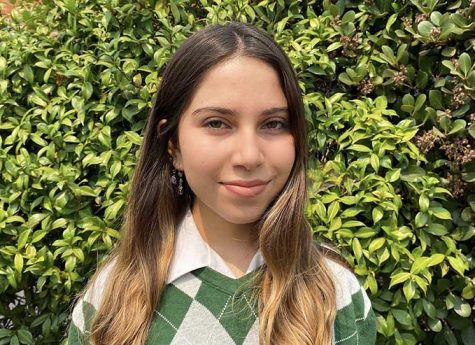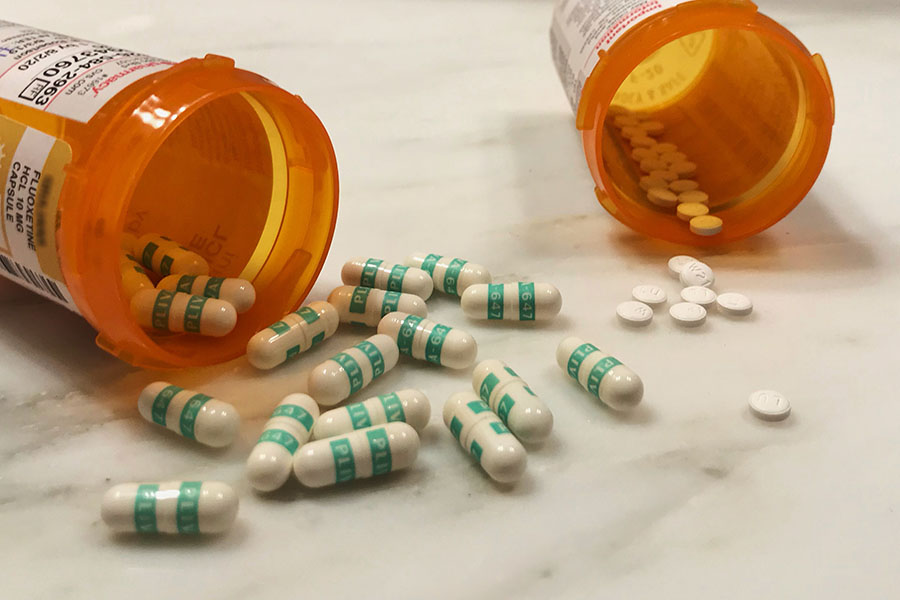Have prescription drugs peaked?
From Lil Xan to ‘Euphoria,’ Gen Z is almost inseparable from pills.
Back in the old days, the average American looked forward to a warm plate of pancakes and eggs with a side of bacon for breakfast.
These days, Americans take their breakfasts with a side of pills.
Since the early 2000s, prescription drugs, specifically for anxiety and depression, have increased by 22 percent, according to the American Psychological Association. Antidepressants such as Prozac are the second most commonly prescribed drugs in the United States, after cholesterol-lowering drugs. According to a study by the National Institute on Drug Abuse, between 2002 and 2015, overdose deaths involving popular anti-anxiety pills such as Xanax and Valium have quadrupled.
The causes for the increase in prescription drug use for anxiety and depression vary.
“Number one, to some degree, there is more anxiety and depression due to daily shootings and the environmental crisis. Number two, there is more openness about mental illness, so there are people who in former times might not have sought help and now they do,” English teacher Ms. Emily Wilkinson said.
Recent research also suggests that writing prescriptions is easier and more profitable than other mental health treatment options, such as therapy.
The board president of the Anxiety and Depression Association of America, Dr. Beth Salcedo, said in an August 2018 interview with CNBC that the cause for the rise in prescriptions is that they are mainly written by primary care doctors who don’t have the resources available for referrals to psychotherapy. According to Consumer Reports, doctors aren’t recommending talk therapy treatment before offering prescription drugs, despite research supporting the idea that prescription drugs are most effective when paired with therapy.
A study for the Archives of General Psychiatry revealed that one-third of patients in the 1990s taking antidepressants also went to therapy. By 2005, hardly one-fifth of antidepressant patients received any therapy. This drop-off is alarming considering that, according to Steven Hollon, a psychology professor at Vanderbilt University, patients with depression are more likely to relapse if they respond to antidepressants rather than those who respond to cognitive therapy.
“It’s so much easier [for doctors] to just write a prescription. Life gets in the way of going to therapy,” Nurse Kathy Larson said.
Along with the convenience of just prescribing drugs, psychiatrists can make up to four times more money by prescribing medication rather than providing talk therapy, according to the American Psychological Association.
“I’ve heard from clients about how brief their initial appointments are. Checks aren’t happening as thoroughly as they should. It’s difficult to see who you’re treating in a half-an-hour session,” Mr. Tom Badzey, psychology teacher and licensed marriage and family therapist, said.
The American Psychological Association is in the process of working on potential solutions to this issue by developing guidelines for treatment options to further educate physicians about better treatments for mental health disorders.
In the meantime, people with anxiety and depression wonder how the mental health landscape will change. Will prescriptions keep going up? Or have anxiety and depression prescriptions peaked?
“I think that we are moving away from prescription drugs, because there are other alternative solutions, such as herbal supplements, which I find useful,” Brenna Derbish ‘21 said.
Another Tolog felt the same way.
“Since mindfulness is a lot more promoted in schools, I feel like people won’t take as many drugs as they do now in the future,” Giuliana Casciani ‘21 said.
Nurse Kathy agrees that the future for prescription drugs could get better.
“Medicine is going to be less about giving medications and more about doctors wanting to know their patient’s story,” Nurse Kathy said.
However, with the amount of money involved in the market for prescription drugs, it is hard to be hopeful. According to Global News Wire, the market for antianxiety drugs and antidepressants is estimated to reach $18.9 billion by 2026.
Prescription drugs may not stop being given to patients anytime soon, but with progressing technology, prescription drugs might become more effective.
“One of my hopes is we’re going to be developing better drugs with better side effects. If we keep on using more and more of the same drugs with the same side effects, that worries me,” Badzey said.

Angelina Arevalos joined the Veritas Shield during her junior year as a staff writer and now serves as the editor of the Community section. She enjoys...

